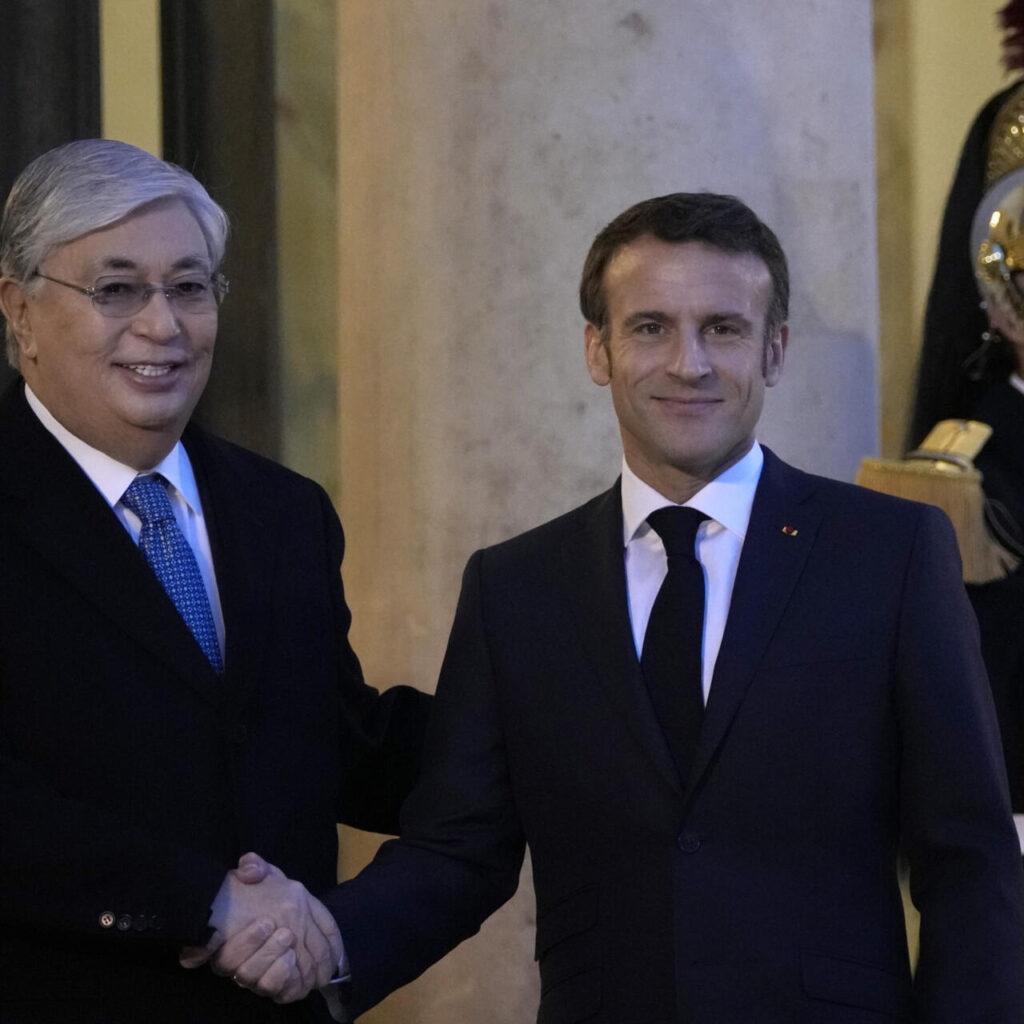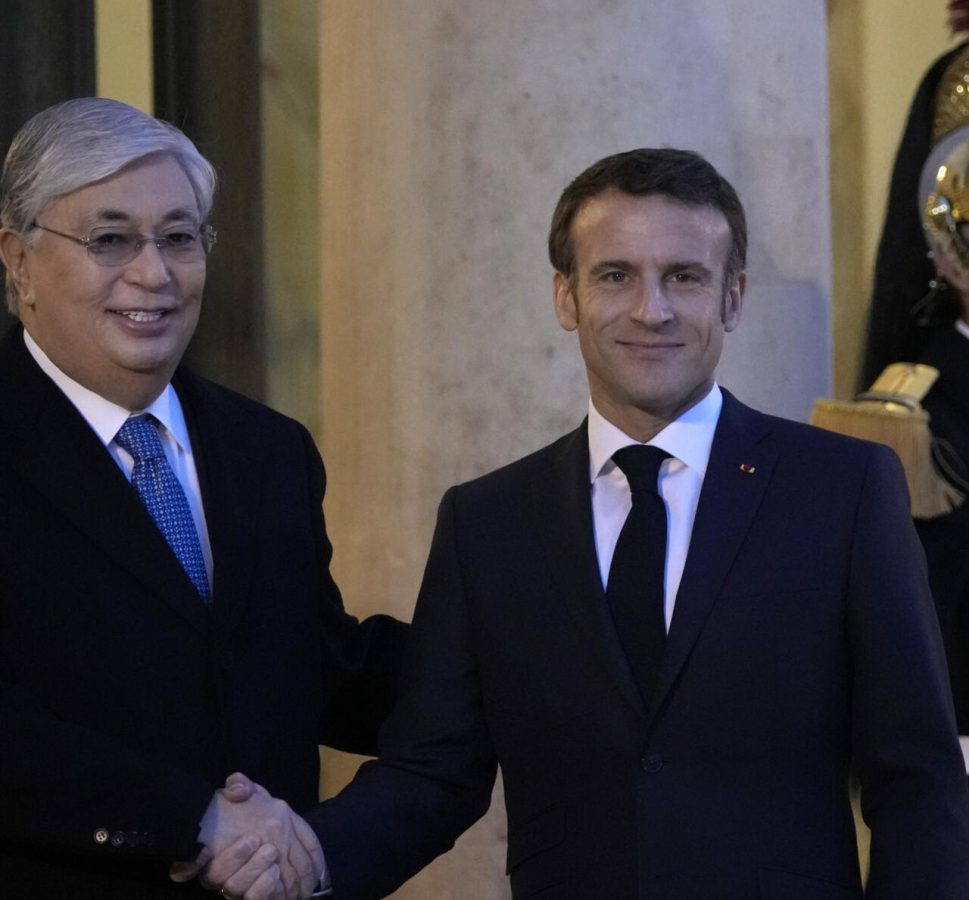
On Wednesday, he called for the acceleration of the strategic partnership between Paris and Astana.
French President Emmanuel Macron is on a mission in Kazakhstan and Uzbekistan to strengthen ties between France and its central Asian economic partners. On Wednesday, he travelled to Astana to meet with his Kazakh counterpart, Kassim-Jomart Tokayev.
Kazakhstan is Central Asia’s leading economy rich in natural resources. It has positioned itself as a supplier of crude oil to European countries.
“The vigour (of our partnership) demonstrates the good strategic directions that have been taken, but (also) the need to complete and accelerate them, which is the whole point of the visit,” said Emmanuel Macron.
He praised Kazakhstan’s “refusal” to take the “road of vassalisation behind a few powers”, despite the fact that Kazakhstan is an ally of Moscow and close to Beijing.
The Kazakh president, Kassim Jomart-Tokayev, also stressed the “need” to give “additional impetus” to relations between Paris and Astana.
“France is our key and reliable partner in the European Union”, said the leader, according to a statement from the Kazakh presidential administration.
A possible nuclear partnership
Wednesday’s visit marks the first time a French president visited Kazakhstan since François Hollande in 2014.
Several contracts have been signed in the strategic minerals, pharmaceuticals, energy, aeronautics and cultural sectors.
According to the Kazakh energy ministry, French energy supplier, EDF, is one of the candidates for Astana’s first nuclear power plant project, whose construction is due to be confirmed by a referendum by the end of the year.
Critical metals, essential to the energy transition and of which the region is rich, also feature prominently in discussions with Uzbekistan, one of France’s main suppliers of uranium.
Uranium specialist Orano, which already operates a mine in Kazakhstan, is also looking to expand its presence, as the country alone produces 43% of the world’s total output, according to the World Nuclear Association.
Emmanuel Macron was accompanied by a large business delegation including the CEOs of EDF (electricity), Suez (water) and Orano (uranium), and is due to open a Franco-Kazakh business forum, before flying to neighbouring Uzbekistan on Thursday.
Franco-Kazakh economic relations: a game of strategy
France is the fifth-largest foreign investor in Kazakhstan, ahead of China, thanks to the presence of the TotalEnergies oil group, which jointly operates the major Kachagan field in the Caspian Sea.
Bilateral trade amounted to 5.3 billion euros in 2022, mainly in hydrocarbons. Kazakhstan also supplies France with almost 40% of its uranium.
Global powers are passionately courting Central Asia, at a time when Russia is preoccupied with its military offensive in Ukraine.
In the game of influences, neighbouring China, with its major “New Silk Roads” infrastructure project, is one step ahead. But Europe and Turkey are also advancing their pawns.
Hungarian Prime Minister Viktor Orban and Turkish President Recep Tayyip Erdogan will follow in Emmanuel Macron’s footsteps in Astana on Thursday and Friday.
Buoyed by this enthusiasm, Kazakhstan and Uzbekistan are banking on economic openness and balanced diplomacy to assert themselves, even if Moscow remains an essential partner.
By visiting the region despite a busy international agenda, Emmanuel Macron intends to “support the sovereignty and desire to diversify partnerships expressed by both countries.”
Specifically, he aims to strengthen bilateral economic ties, cooperation on major climate issues and France’s “diplomacy of influence” with young people.
In Uzbekistan, Central Asia’s most populous country with some 35 million inhabitants and a long-time recluse, Emmanuel Macron will make up for almost 30 years of absence, no French president having visited since 1994.






